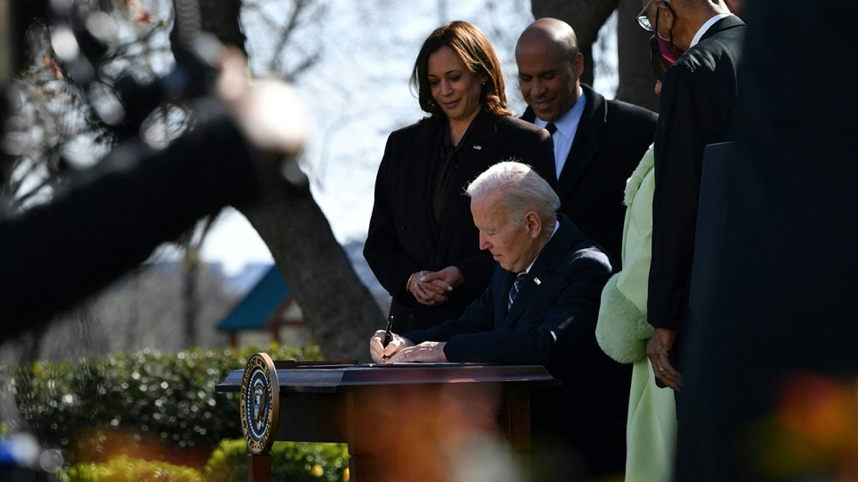President Biden signed into law Tuesday a historic bill to make lynching a federal hate crime in the U.S. for the first time.
Why it matters: The new law comes after more than 200 attempts to codify federal anti-lynching legislation.
The absence of a statute allowed the vast majority of perpetrators to go unpunished in cases of nearly documented 6,500 racial terror lynchings between 1865 and 1950.
Details: Under the new law, a crime would be prosecuted as a lynching when death or serious bodily injury results from a conspiracy to commit a hate crime.
A convicted perpetrator would face up to 30 years in prison.
The bill was named in honor of Emmett Till, the 14-year-old Black boy whose brutal 1955 torture and murder in Mississippi helped spark the civil rights movement.
Between the lines, via Axios’ Russell Contreras: By finally making lynching a unique federal crime, the nation is coming to terms with how lynching was used to enforce a racial social order at the risk of violence against people of color.
Federal prosecutors will have another tool to use against violators, even if local prosecutors and weak grand juries look the other way.
What they’re saying: “Thousands of people in states across our nation were tortured and murdered by vigilantes,” Vice President Kamala Harris said at the signing ceremony. “They were dragged from their homes, they had ropes wrapped around their necks. They were hanged, earned, drowned and dismembered.”
“Lynching is not a relic of the past,” she added. “Racial acts of terror still occur in our nation. And when they do, we must all have the courage to name them and hold the perpetrators to account.”
“Today, I am thinking of Emmett Till and the countless other victims of this brutal crime whose names we do not know,” said Rep. Bobby Rush (D-Ill.), who led the bill in the House, in a statement. “His lynching … had a ripple effect that we still feel today.”
“The signing of this bill is a victory for the City of Chicago, a victory for America, and a victory for Black America in particular.”
“My family was devastated that no one was held responsible for the abduction, torture and murder of Emmett,” Wheeler Parker Jr., Till’s cousin, said in a statement. “But we are heartened by this new law, which shows that Emmett still speaks in powerful ways to make sure that no one can get away with a racist crime like this ever again.”
“For people of color, lynching has been a [ubiquitous] part of American life following Reconstruction, as an act of racial power to enforce place in our society,” added Christopher Benson, president of the Till Institute board.
“This law makes us face our nation’s history, and helps us recognize the need for systemic change to advance the values of a truly multicultural society.”




